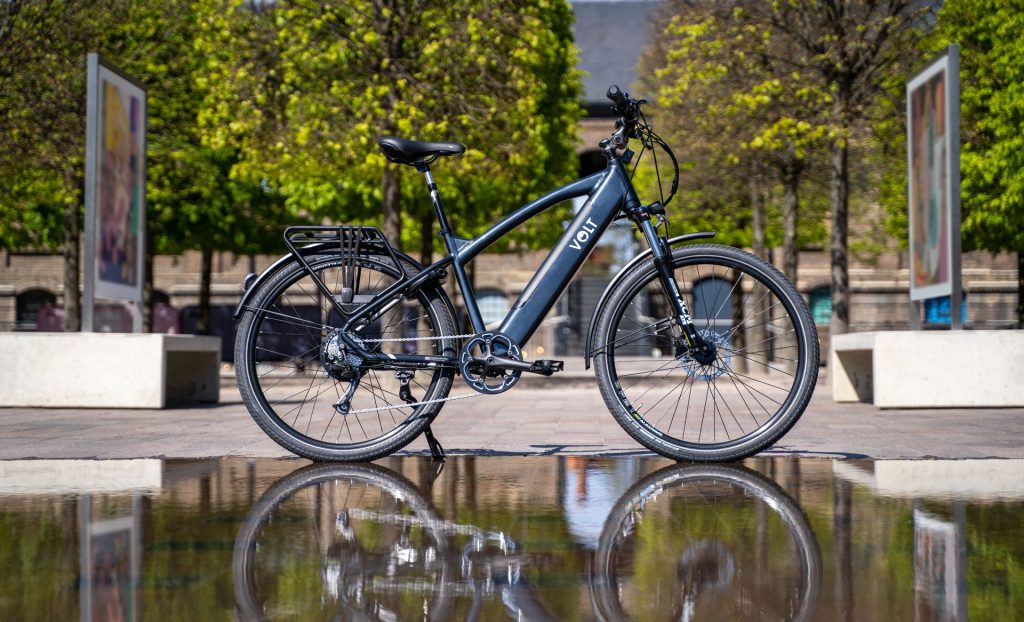Introduction: The Eco-Friendly Reputation of E-Bikes and Smart Bikes
In recent years, e-bikes and smart bikes have gained popularity as eco-friendly transportation alternatives, lauded for their potential to reduce traffic congestion, emissions, and dependence on traditional vehicles. These bikes, equipped with electric motors, sensors, and smart technology, are often presented as solutions to both urban mobility issues and environmental challenges. With growing concerns about climate change, pollution, and the sustainability of transportation systems, many see e-bikes and smart bikes as a step toward a greener future.
However, the environmental benefits of e-bikes and smart bikes are still a subject of debate. Are these innovative bicycles truly as eco-friendly as they seem, or do they come with hidden environmental costs, particularly in terms of production, energy use, and waste? In this article, we’ll explore the environmental impact of smart bikes and e-bikes, considering both the positive and negative aspects of their development, use, and disposal.
Environmental Benefits: Reduced Emissions and Energy-Efficient Design
- Reduction in Greenhouse Gas Emissions
One of the primary selling points of e-bikes is their ability to reduce greenhouse gas emissions, especially when compared to traditional vehicles. A study conducted by the European Cyclists’ Federation (ECF) found that replacing car trips with e-bike trips can significantly reduce carbon emissions. E-bikes are much more energy-efficient than cars, as they rely on electric motors to assist pedaling rather than burning fossil fuels. This means that, over the course of their use, e-bikes contribute to a considerable reduction in overall emissions.
The carbon footprint of an e-bike depends on several factors, including the energy source used to charge the battery. If the electricity used to charge the bike comes from renewable sources, the environmental impact is much lower than if the bike is charged with energy generated from fossil fuels. Nonetheless, even when charged with electricity from non-renewable sources, e-bikes typically have a smaller carbon footprint compared to cars or motorcycles, which contribute significantly to air pollution and greenhouse gas emissions.
- Energy-Efficiency of Smart Bikes
Smart bikes, which incorporate technology such as GPS tracking, ride analytics, and wireless communication, also offer significant energy savings when compared to traditional methods of transportation. By reducing the need for fossil fuel-based commuting, these bikes help alleviate congestion, leading to a reduction in idling traffic, which can further contribute to reduced emissions. In addition, smart features allow cyclists to optimize their rides by adjusting power settings, monitoring energy use, and finding the most efficient routes for commuting.
In comparison to conventional bicycles, e-bikes and smart bikes provide greater accessibility, particularly for those who would otherwise be unable to cycle long distances or handle steep inclines. By enabling more people to adopt cycling as a primary mode of transport, e-bikes and smart bikes can contribute to the reduction of overall vehicle use, thereby decreasing congestion and emissions on the roads.
- Encouraging Sustainable Transportation
E-bikes and smart bikes also encourage a shift toward sustainable transportation. As more people adopt these bikes, there is a potential to reduce the demand for private car ownership, especially in urban environments. In cities with traffic congestion and air pollution, e-bikes can serve as an efficient and low-emission alternative to cars and public transportation. Additionally, they offer greater flexibility in terms of urban mobility, allowing users to bypass traffic and take more direct routes, which further decreases the environmental impact of transportation.
Moreover, the use of e-bikes for deliveries and shared transportation systems (such as bike-sharing programs) has seen rapid growth in many cities, further enhancing their role in sustainable urban mobility. By shifting short trips from cars to e-bikes, cities can reduce the strain on transportation infrastructure and improve air quality.
Manufacturing Impact: How Sustainable Are the Production Processes of E-Bikes and Smart Bikes?
- Energy-Intensive Production of Batteries
While e-bikes offer environmental benefits in terms of reduced emissions during use, the production of their key components, particularly the batteries, can have a significant environmental impact. E-bike batteries, typically lithium-ion, require energy-intensive manufacturing processes that involve mining raw materials such as lithium, cobalt, and nickel. These minerals are often extracted through mining practices that can be harmful to the environment, causing deforestation, water pollution, and habitat destruction.
Additionally, the extraction of these raw materials often takes place in regions with lax environmental regulations, which raises concerns about human rights abuses, as well as the ecological impact of mining. The mining industry’s impact on local communities, as well as the potential for depletion of these non-renewable resources, are factors that need to be considered when evaluating the sustainability of e-bikes.

- Carbon Footprint of Manufacturing
The production of e-bikes, like most consumer goods, contributes to carbon emissions. However, studies suggest that the carbon footprint of e-bikes is still significantly lower than that of traditional vehicles. A study by the Swedish Environmental Research Institute found that the production of an e-bike results in around 200–250 kg of CO2 emissions, which is much lower than the carbon footprint of manufacturing a car, which can exceed 6,000 kg of CO2.
The environmental cost of manufacturing e-bikes is primarily driven by the production of batteries, the frame, and other components. Fortunately, many manufacturers are adopting more sustainable practices, such as using recycled materials, reducing energy use in production, and working toward improving the longevity of their products. Nonetheless, the full lifecycle analysis of e-bikes—including production, usage, and disposal—suggests that their overall environmental benefits are still significant when compared to fossil fuel-powered vehicles.
- Sustainability of Smart Bike Technology
Smart bikes, which integrate technology such as GPS, sensors, and wireless communication, add an additional layer of complexity to the environmental impact. The components used in smart bikes—such as chips, sensors, and wireless communication devices—require electronic waste management processes, and the production of these parts contributes to environmental strain. However, the environmental cost of these components is relatively low compared to the overall benefits of reducing carbon emissions and increasing energy efficiency through the use of the bike itself.
Many smart bike manufacturers are now considering environmental factors in their designs, using recyclable materials and reducing the energy consumption of smart features. By focusing on reducing the environmental impact of both the bike’s use and its components, the industry is moving toward a more sustainable future.
Expert Insights: Opinions on Whether E-Bikes Can Truly Contribute to Sustainability
- Positive Perspectives
Many experts in the cycling and environmental sustainability sectors believe that e-bikes can play a crucial role in reducing urban carbon emissions and promoting sustainable transport solutions. According to a report by the International Transport Forum, e-bikes are among the most efficient modes of transportation in terms of energy use per kilometer traveled. By shifting short trips away from cars, e-bikes can reduce urban congestion and improve air quality.
Moreover, as battery technology improves, the environmental impact of e-bikes is expected to decrease further. With innovations in battery recycling and more sustainable sourcing of materials, the e-bike industry could significantly reduce its overall environmental footprint in the coming years.
- Critical Views
On the other hand, some critics argue that e-bikes, despite their apparent benefits, may not be a perfect solution to urban transportation problems. While they are certainly more sustainable than traditional vehicles, the environmental impact of manufacturing and disposing of e-bikes—particularly the batteries—remains a concern. The long-term environmental impact of e-bike battery production and disposal must be addressed through innovation in battery recycling and the use of more sustainable materials.
Additionally, some critics point out that the focus on electric bikes may overshadow other, more sustainable transportation options such as traditional bicycles, public transportation, or walking. They argue that while e-bikes offer a bridge between traditional cycling and car use, they may not fully address the root issues of over-reliance on personal vehicles and the unsustainable urban sprawl that contributes to environmental degradation.
Conclusion: Are Smart Bikes and E-Bikes Genuinely Green, or Just a Marketing Gimmick?
While the environmental impact of smart bikes and e-bikes is not without its challenges, the evidence suggests that they are significantly greener than traditional vehicles. The reduction in greenhouse gas emissions, improved energy efficiency, and the potential to reduce congestion and pollution in urban areas make e-bikes and smart bikes a valuable component of sustainable transportation solutions. However, the full environmental benefits can only be realized through continued advancements in battery technology, the use of sustainable materials in production, and the development of effective recycling systems.
Critically, e-bikes and smart bikes should not be seen as a silver bullet for solving transportation-related environmental issues. They are a step in the right direction but must be part of a broader strategy to promote sustainable urban mobility, reduce reliance on private vehicles, and adopt greener manufacturing practices across industries.







































Discussion about this post